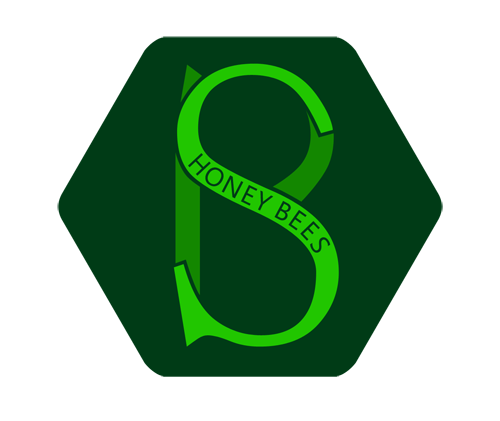We use cookies to make your experience better. To comply with the new e-Privacy directive, we need to ask for your consent to set the cookies. Learn more.
About the business
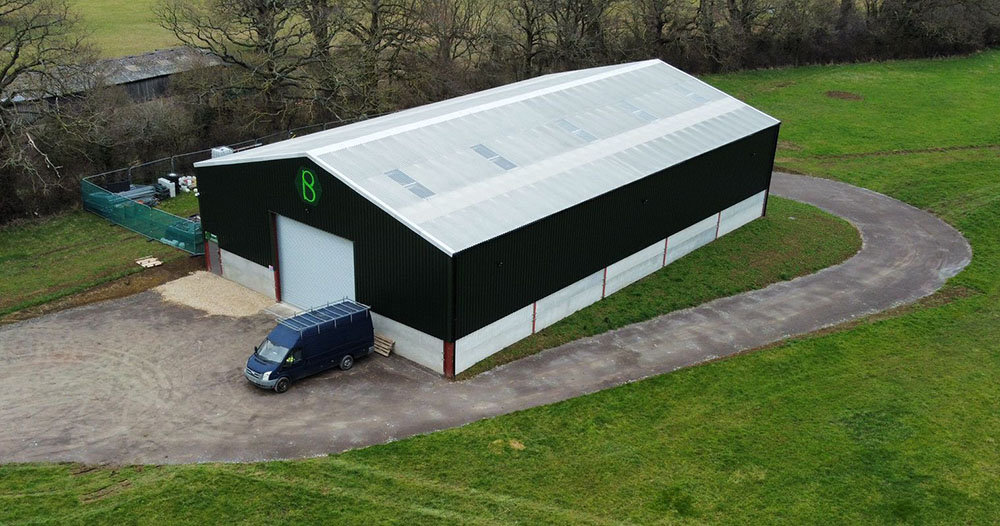
BS Honey Bees Ltd is an agricultural bee farm, specialising in the breeding and sale of honey bees & queens alongside bulk honey production. We now operate from a 6000sqft purpose-built premises, on a 13.22-acre plot of land, based in Gloucestershire and have over twenty-two million bees. These are kept in hives, located on farmland within a 15 mile radius of our base. They are kept for the production of honey and as breeding units for nuclei sales (small bee hives). These nuclei are then grown to a size suitable for customers to maintain. Most are pre-ordered via our website in the winter prior to delivery and are either collected in person or delivered by a trusted courier to customers up and down the UK in specially designed travel boxes. Each year we estimate that we sell around ten million bees this way.
We also produce Polystyrene Beehives in which the bees are bred and then sold. Our experience shows that the bees thrive and survive better through winter in these polystyrene hives. Another side to our business is the sale of Queen Bees, with desired genetic traits. We sell around 7000+ each season which are also sent in the post all over the UK. These are the same queens that we use in our hives, which we find are pleasant to work with and productive.
As well as breeding bees we produce around 10,000kg+ of honey per season, which is collected and then extracted using our state-of-the-art Paradise extraction line. The honey is decanted into bulk buckets or drums and then sold to new & long-standing customers.
Business History (Written by Daniel Bates - Managing Director)
Myself and Tristan began the business in 2011 (aged 21) after working within the industry since 2007/2008. We both reside in Brockworth, Gloucester and went to the local comprehensive school together. We met (aged 10) when we both built competing go-karts to downhill race on our estate (I lost). We generally share interests and are very knowledgeable between the two of us in a lot of aspects, including computing, mechanics, building, business and woodwork.
I left school in 2006 when the recession hit, jobs were a struggle to come by and lots of companies were folding quickly. Initially my sole career desire was to go into I.T, with extensive knowledge (at the time) of web development, technical support & programming. After a while I began searching for any work available to me, as it so had it, a local bee farmer was looking for a general labourer to assemble beehives and frames. I was keen to get on board as I have always enjoyed woodwork since I was around 7 or 8 years old working alongside my dad (CAD / CAM engineer & toolmaker). Shortly after this I was thrown in at the deep end, and before I knew it, I was shadowing a Ukrainian beekeeper (Viktor Zinchenko, as featured on Clarkson’s Farm) and soon became a full-time bee farmer. My employer was very impressed with my skills and forwarded me onto a large bee farm in Australia. I was soon out in New South Wales, Australia for the UK winter of 2008. At the age of 18, for a 6-month stint working with a bee famer running 3000 hives for breeding, package bee export & honey production.
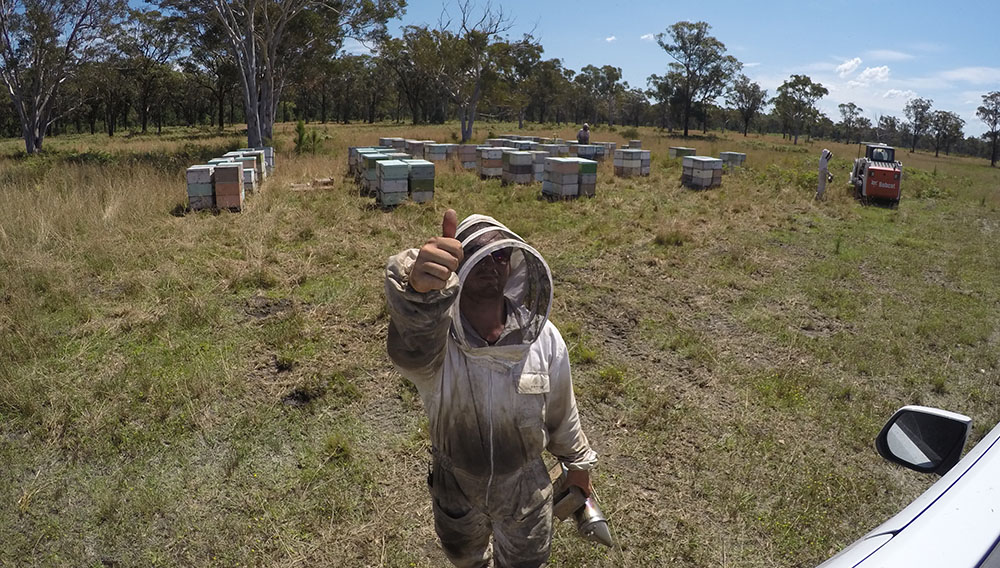
Back in the UK, Tristan had just left Sixth Form with good A levels and GCSE’s. He has good skill sets and pays a lot of attention to detail, especially within carpentry. With much the same skill sets, he struggled to get work also lacking the “experience” employers always seek. As my current employer was looking for someone to replace me on the woodwork whilst I was away, I put Tristan forward to cover for me temporarily and essentially, he never left the bee farming world.
On my return in April 2009, I began working alongside Tristan on the Bee Farm, he quickly picked up the skills required and we both began to run the bee operation whilst our elderly employer took more of a back seat (and Vicktor moved on setting up his own bee farm in Oxford).
Each year I returned in the winter to work in Australia, saving funds from each visit. Tristan accompanied me on 2 occasions, saving money also. Each visit, our wealth of knowledge increased and we saw potential in the UK to consider a new venture start up, with our employer back in the UK still behind regarding modern business dealings, online ordering etc. We saw that there was a niche market we could go into with the benefit of our knowledge of web development & carpentry skills.
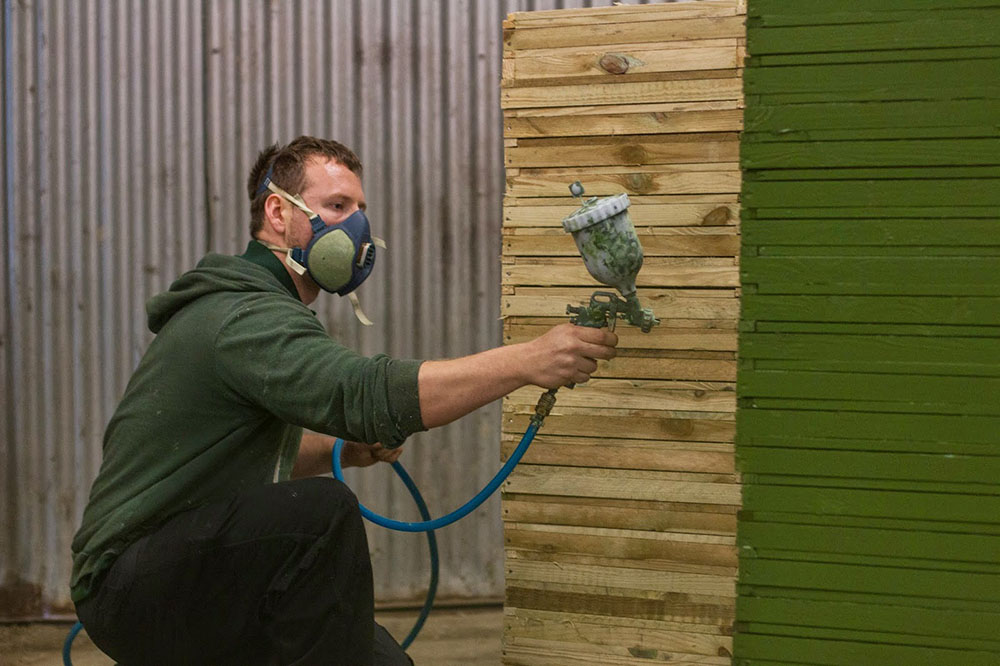
In 2011 we began working evenings and weekends, cutting and building our own hives (from my mum’s garage), investing all the money we had from our Australia work and current employment to begin our own Honey Bee Farm. With the help of some friendly landowners (to host apiaries) & some package bees, we quickly had 40 hives up and running, we maintained these over the weekends whilst we were still in full time employment.
We both left again that winter for Australia, selling our only vehicle, a 1994 Toyota Hilux 4x4 to just pay for the plane tickets, not knowing how our bees would fare during the winter . During our time in Australia, we used the terrible internet connection to develop our brand “BS Honey Bees” (Bates & Sawczuk Honey Bees), register and launch our website. On our return in April 2012 our first inspection revealed 40 thriving colonies and we began registering our partnership business for the new tax year (now incorporated BS Honey Bees Ltd), setup a business bank account and informed our employer of our intentions. He was quick to wish us well and wave us off. We increased our colonies to around 80 during this season by splitting and using skills learnt from Australia. Tristan’s problem-solving skills and our combined knowledge meant we were a powerful team that could run each aspect of the business.
Unfortunately, disaster struck in November 2012 whilst I was back out working in Australia, Tristan began sending me pictures of hives completely underwater due to severe flooding. I was powerless and gutted at the sight of all our hard work being destroyed.
On my return, March 2013 saw one of the coldest springs I have experienced with snow still in April and conditions not really improving. This meant that any surviving bees soon dwindled, and we were down to just over 20 hives that were viable, but with 20 overwintered nucs for sale, meaning we could afford to keep ourselves and the business afloat. By the end of 2013 (the summer was long and prosperous) we managed to buy more package bees to rebuild and, although we missed out on a spring honey crop, we took a fair summer honey crop which allowed us to stay in the UK that winter.
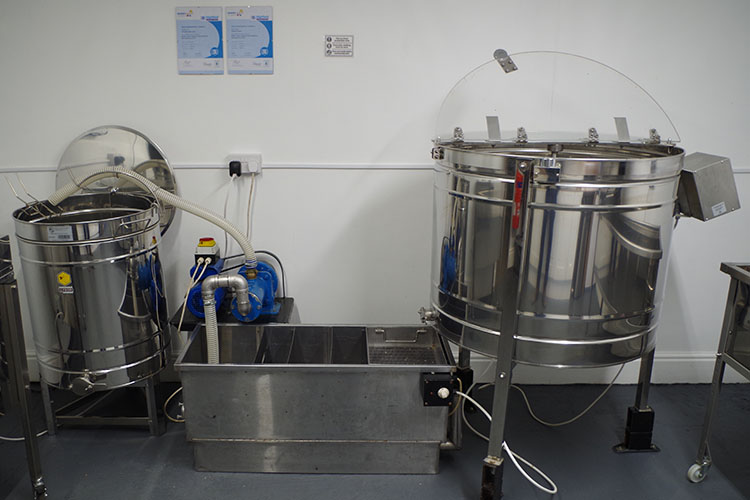
Over the next few years, we built the business, increased colony numbers, built our reputation and took on a rented 1600sqft barn in September 2014 on a livery yard in Cheltenham. We kitted the unit out with a food grade extraction room with a very basic extraction setup of which we soon outgrew. In the season of 2015, we invested into new Lyson honey extraction equipment, which helped us process more honey quicker and more efficiently. It allowed us to raise our colony numbers, as the machines could now cope with the quantity.
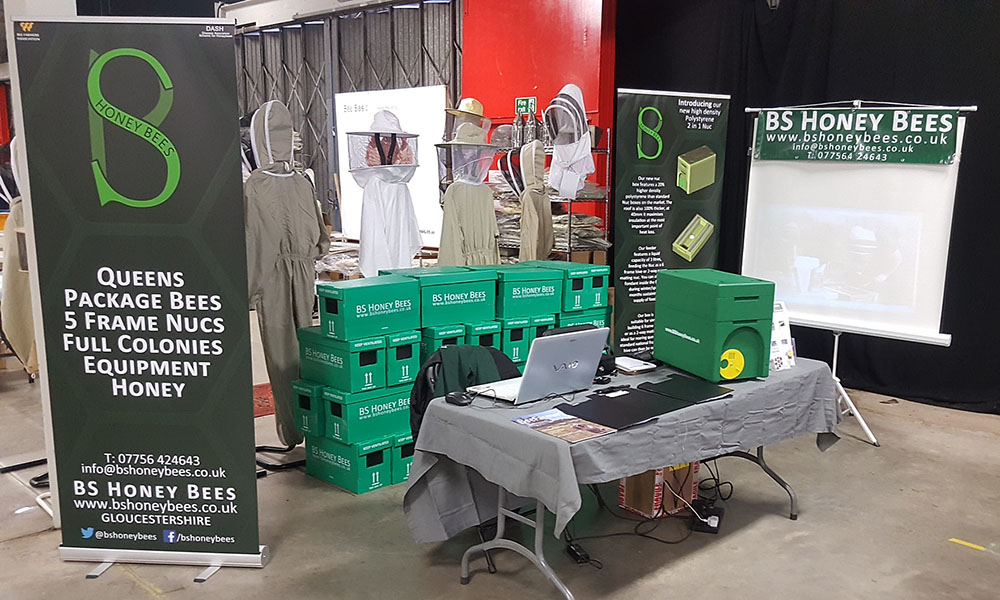
In 2016 we decided to diversify into Polystyrene Beehives (after heavily investing in their use during 2014). With investment into steam tooling which produced a Poly Nuc Box, we received our first samples in 2017 and had the box in full production later that year. To date we have sold 25000 units of these boxes since their release.
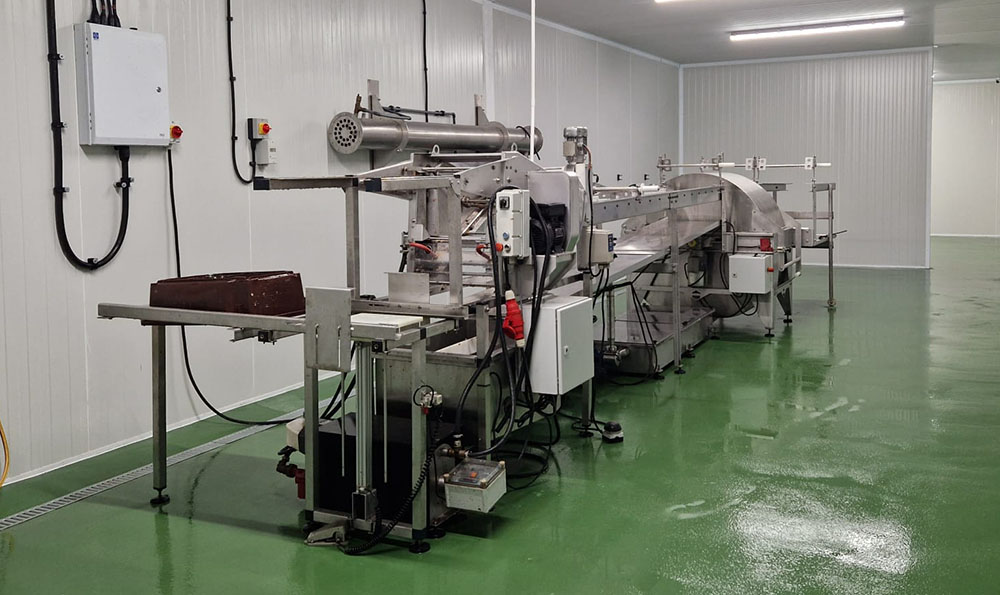
With the summer heat wave of 2018, we experienced a bumper crop of honey and our poor 42 frame honey extractor struggled, and so did we. By the time we had finished we were exhausted, it just could not cope with the quantity of honey being passed through it. This is where the decision came that we need to invest into a new automated extraction line to cope with current colony numbers and to allow for future growth. We had worked extensively with extraction lines in Australia, and we believed it would be a huge asset to our business. We were able to successfully obtain our new 120 frame Paradise honey extraction line (with support from a LEADER grant) and squeezed it into our rented building in the winter of 2019 (after an extensive internal remodel).
After many years of renting, we had made the early decision to acquire land to erect our own purpose-built premises. After nearly 7 years of losing informal tenders and auctions we finally managed to successfully bid & win a 13.22-acre property on Hucclecote Lane in Gloucestershire during 2021, only a few miles away from our homes in Brockworth. We completed on the property in late August 2021 and almost immediately set about applying for planning permission for our 6000sqft agricultural building.
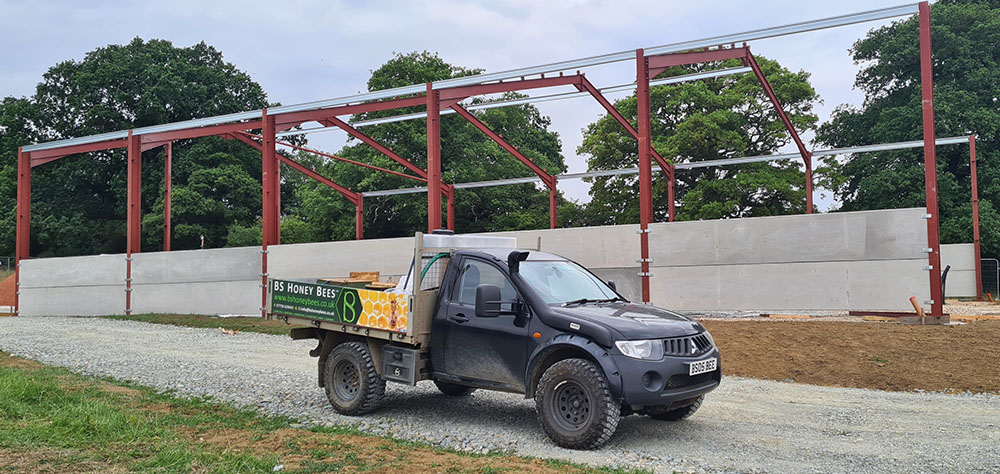
Around 6 months later (and a lot of back and forth from Tewkesbury Borough Council) we finally had planning permission accepted, with no objections! The groundwork began at the start of May 2022 and our building was erected during late July 2022 with the final concrete slab poured in early October 2022. We then began to build the internal rooms out of 100mm insulated PIR panels, these rooms consisted of - Honey bottling room, honey extraction plant, secure COSHH lock up, staff toilet, staff kitchenette, office, customer toilet & entrance / reception. Having constructed this type of "cold rooms" in the past we were very confident in our abilities to deliver in just under 2 weeks. Once the rooms were completed, we contracted the entire unit floor to be painted in epoxy resin & the food grade rooms in a 9mm Polyurethane screed. Once the floor was dry enough the move began, and we had fully vacated our rented premises by early December 2022. Early 2023 was very cold and we still had a lot to setup and warehouse to fully rack out, but we just about arranged everything (to a functional level) by the start of the season in mid-March 2023.
To date, we have now nearly finished a full season in our new premises, the space and efficiency it offers us is unparalleled to what we were used to in our cramped 1600sqt building before and we are extremely proud of our achievements. Everything we have has been made possible by our loyal customers, by supporting us and our small business you have made 2 bee farmers dreams possible, but this isn't the end! We have more plans for 2024 to help further increase our efficiency and environmental impact going forward with further improvements to our product lines and premises.
For now, we remain humble, and we do not take anything for granted given the challenges nature offers us each season. We can only step back and appreciate what we have worked hard for over the last 12 years.
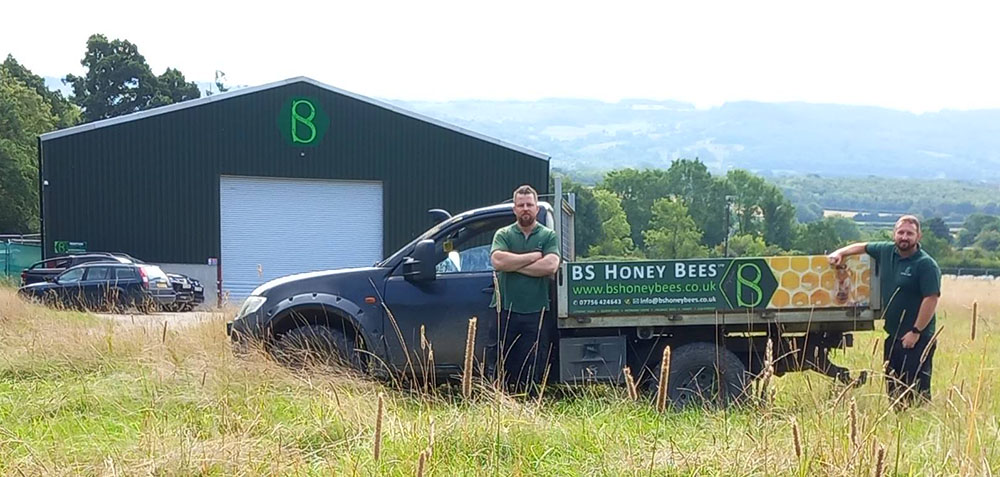
Tristan & Daniel
